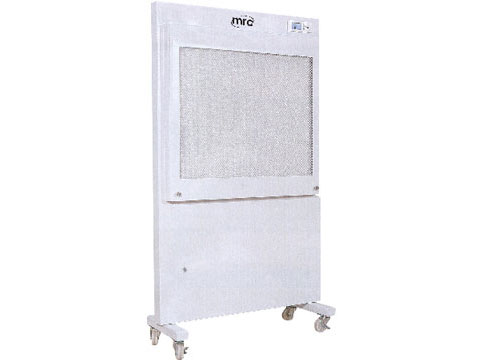Air purifier is an air purification equipment with advanced level, widely used in hospital, a small clinic, laboratory, office, meeting room and home etc. It can protect your life and your health through purifying dust, germ and virus, etc in the air. Air Purify, Air Purifier. A good air purifier clears the air from pollen and dust.We provide a range of quality air purifiers. Air purifier units produce a safe high level of oxygen that neutralizes harmful fumes and removes problematic odors from organic materials as well as some common chemicals such as: formaldehyde, xylene, toluene, glutaraldehyde, alcohol, acetone.
In the realm of modern laboratories, ensuring a clean and contaminant-free environment is paramount. With the advancement of technology and the increasing sensitivity of experiments, laboratory air purifiers have become an indispensable tool. In this article, we'll delve into the significance of laboratory air purifiers, their benefits, and how they contribute to creating a safe and healthy research environment.
What are Laboratory Air Purifiers?
Laboratory air purifiers are specialized devices designed to remove various airborne contaminants, particles, and pollutants from the laboratory environment. These pollutants can include dust, fumes, volatile organic compounds (VOCs), microbes, and even odors. The goal is to maintain a controlled atmosphere that doesn't interfere with experiments or compromise the health of laboratory personnel.
How Do Laboratory Air Purifiers Work?
Laboratory air purifiers employ advanced filtration technologies to effectively eliminate contaminants. HEPA (High-Efficiency Particulate Air) filters are commonly used to trap particles as small as 0.3 microns with a high efficiency rate. Additionally, activated carbon filters are employed to adsorb gases and odorous compounds, ensuring the air is clean and odor-free.
Benefits of Laboratory Air Purifiers
Ensuring Data Accuracy and Reliability
Contaminants in the laboratory air can adversely affect experimental results, leading to inaccurate data and unreliable conclusions. Laboratory air purifiers play a crucial role in maintaining a controlled environment, minimizing the risk of experimental errors caused by airborne pollutants.
Protecting Research Personnel
Exposure to hazardous chemicals, fumes, and airborne pathogens can pose serious health risks to laboratory personnel. Laboratory air purifiers help reduce these risks by removing harmful substances from the air, ensuring a safer work environment.
Preserving Equipment Longevity
Sensitive laboratory equipment can be negatively impacted by the presence of particles and contaminants in the air. Regular use of air purifiers can extend the lifespan of equipment by preventing the buildup of dust and other particles that could clog delicate mechanisms.
Selecting the Right Laboratory Air Purifier
Consider the Laboratory's Needs
Different laboratories have different requirements when it comes to air purification. The size of the laboratory, the types of experiments conducted, and the nature of contaminants present all influence the choice of air purifier. It's important to select a purifier that matches the laboratory's specific needs.
Evaluating Filtration Efficiency
When choosing a laboratory air purifier, the filtration efficiency is a critical factor. Look for purifiers equipped with HEPA filters and activated carbon filters, as these offer high-performance filtration.
Noise Levels and Energy Consumption
Laboratories often require a quiet working environment. It's advisable to choose an air purifier with low noise levels. Additionally, energy-efficient models help reduce operational costs and environmental impact.

Air purifier products: